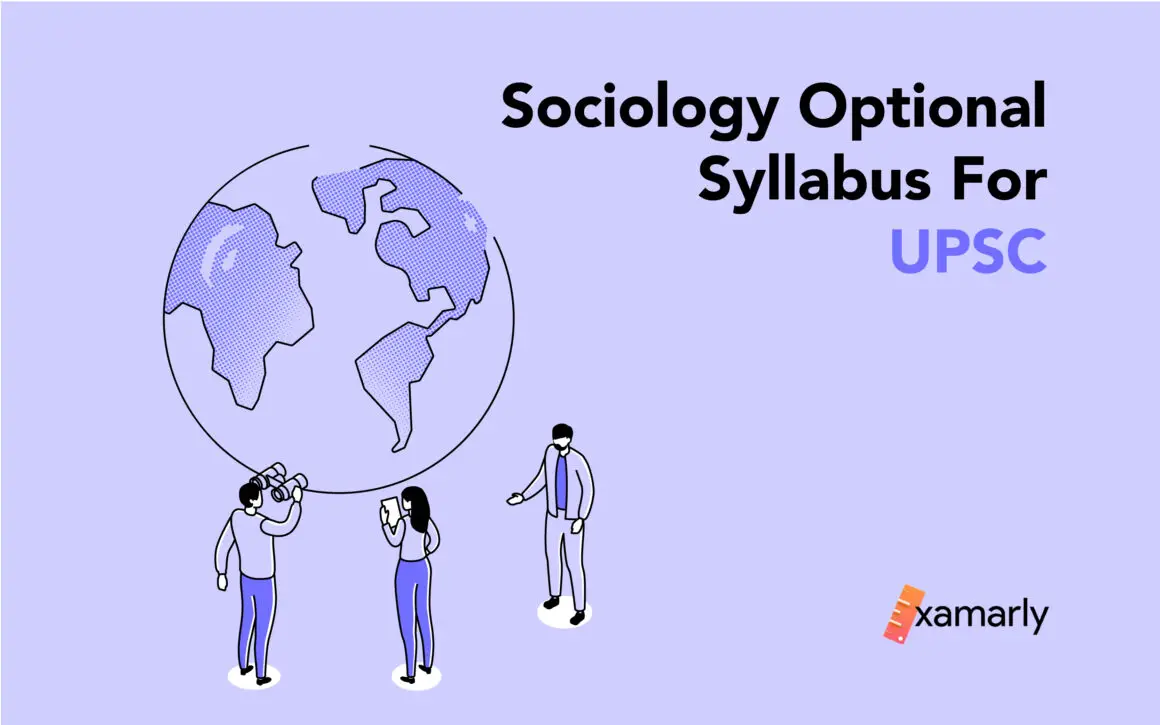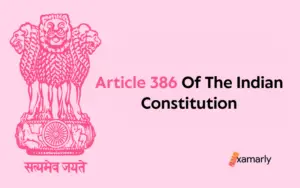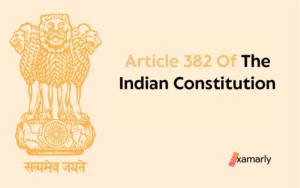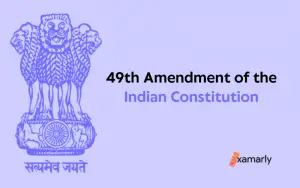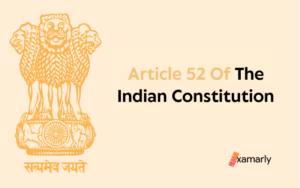Aspirants frequently choose sociology as an elective topic for the UPSC Mains since IAS officers must deal with numerous sides of society, and sociological knowledge is useful for their profession.
The Sociology optional syllabus for UPSC exam contains various topics related to the study of societies. You can study the topics by using videos, notes, and practice tests. To make your preparation more effective and efficient, make sure you regularly practice answering questions.
- Understanding The Sociology Optional Syllabus For UPSC
- Fundamentals Of Sociology
- Sociology – The Discipline
- Sociology as Science
- Research Methods and Analysis
- Sociological Thinkers
- Stratification And Mobility
- Works And Economic Life
- Politics And Society
- Religion And Society
- Systems Of Kinship
- Social Changes In India
- Social Structure
- Introducing Indian Society
- Social Change In Modern Society
- Frequently Asked Questions On Sociology Optional Syllabus For UPSC
Understanding The Sociology Optional Syllabus For UPSC
Sociology is structural functionalism that holds the norms of institutions, relationships, roles, and society that make up society have a function and are necessary for the survival of all the others as well as of society as a whole.
Studying the question papers from the previous year is the next stage in understanding the UPSC Sociology Optional syllabus. These papers will give you a sense of the kinds of questions that might be asked during the exam. Reading the NCERT textbooks for classes 11th and 12th can be a good place to start. In addition, if you are committed to getting a sociology degree, you might browse IGNOU B.A. books. The sociology NCERT books are also helpful because they will provide you with a fundamental understanding of the curriculum.
The sociology optional syllabus for UPSC Main Examination is divided into Papers 1 and 2. Two papers will be given on the sociology subject. There will be ten social issues covered in the first paper. Three subjects are covered in the second paper. While Paper-1 focuses on fundamental sociological ideas, Paper-2 primarily examines Indian society. This syllabus has been prepared topic-wise for the convenience of the candidates. In this way, students can find a quick reference to prepare for the exam.
See Also – Sociology Optional For UPSC
Fundamentals Of Sociology
Sociology – The Discipline
- Enlightenment, Social Change in Europe, and Emergence Of Sociology
- A comparison with other social sciences and the subject’s range
- Sociology and common sense.
Sociology as Science
- science, scientific method, and criticism
- Major theoretical strands and research methodology
- Positivism and its critiques
- Fact value and objectivity
- Non-positivist methodology
Research Methods and Analysis
- Qualitative and quantitative methods
- Data collection techniques
- samples, hypotheses, variables, reliability, and validity
Sociological Thinkers
- Max Weber- Social action, The fundamentals of capitalism, the protestant ethic
- Robert K. Merton- Latent and explicit functions.
- Robert K. Merton- Reference groups, conformance and deviation, latent
- Emile Durkheim- Division of labor, a societal truth, suicide, religion, and society
- Karl Marx- Historical materialism, the production process, alienation, and the struggle of the middle classes.
- Marxist theory
- Talcolt Parsons- Social system and the Pattern variables
- Mead – Self, and identity.
Stratification And Mobility
Stratification and mobility are two concepts that are closely related to each other. In simple terms, social mobility is the transition of people from one position in a social hierarchy to another. This is an indicator of how fair and meritocratic society is. In contrast, traditional societies have low levels of mobility. This topic deals with-
- Concepts like equality between the sexes, hierarchy, exclusion, a lack of resources, and poverty
- social stratification- Structural functionalist theory, Marxist sociology theory, Weberian theory.
- Social stratification of class, status groups, gender, ethnicity, and race
- Social mobility, types of mobility, class mobilization
- open and closed systems
Works And Economic Life
The sociology of labor and economic life is concerned with how work is changing and how this will affect workers. It draws on organizational studies, labor and employment relations studies, and sociological traditions. It emphasizes how work is evolving in a global setting in particular. Inequalities in the distribution of labor and its historical significance are also explored.
- social organization of work in different types of society- slave society, feudal society, civil society, capitalist society
- Formal and informal organization of work
- labor and society.
Politics And Society
Political control, or what we shall refer to as power and authority, plays a crucial role in society. Political scientists do not approach the study of governmental power and authority as sociologists do.
- Sociological theories of power
- Power elite, bureaucracy, pressure groups, and Political parties
- Social Movements, protests, agitation, collective action, revolution.
- Nation, state, citizenship, democracy, civil society, ideology
- Theories of power, decentralization of power, Indian nationalism.
Religion And Society
Religion is the creation of humans, unlike the theological perspectives that emphasize the divine origin of religion and society.
- Sociological theories of religion
- Religious practices: animism, monism, pluralism, sects, cults
- Religion in modern society: religious revivalism, religious minorities, religious communities
- Theories of religion, secularization, fundamentalism.
Systems Of Kinship
Systems of Kinship is included in the UPSC’s optional sociology curriculum. To comprehend the numerous facets of social relations and how they affect society, it is crucial to study this issue. Kinship is the most fundamental human relationship, and it serves as the foundation for this topic. Blood, marriage, and adoption links are all involved in this relationship. Marriage-based relationships are referred to as kinship relationships, and these relationships shape how people behave.
- Family, household, marriage
- family planning and reproductive health
- Types and forms of family,
- Social background
- Patriarchy and sexual division
- Lineage and descent
Social Changes In India
Social change is the alteration of long-standing social norms, social values, or the structures and supporting mechanisms of society. Social change is typically partial but it can also be total.
- Community Development Programe
- Sociological theories of Social Changes
- Social reforms, social relationships
- Economic development rural development
- Crisis of development and Idea of development planning
Social Structure
The distinctive, reliable setup of institutions that allows people to interact and coexist in a society is known as the social structure. The idea of social change, which is concerned with the forces that alter the social structure and societal organization, is frequently discussed in social structure.
Rural and Agrarian Social Structure
- Agrarian class structure, the evolution of land tenure
- The idea of Indian village and village studies
Study of caste systems
- Perspectives on the study of caste systems: G. S. Ghurye, M. N. Srinivas, Louis Dumont, Andre Beteille.
- Features of the caste system
- Untouchability forms and perspectives
Tribal communities
- Definitional problems.
- colonial period
- Colonial policies and tribes.
- Geographical spread.
Social Classes
- Agrarian class structure.
- Industrial class structure.
- Middle classes in India.
- class struggle
Religion and Society
- religious revivalism
- Religious communities in India.
Types of kinship systems
- Lineage and descent in India.
- Types of kinship systems.
- Family and marriage in India.
- Household dimensions of the family.
- Patriarchy, entitlements, and sexual division of labor.
Introducing Indian Society
If you want to take sociology as an elective for the Mains test, introducing Indian culture is a great choice. It imparts crucial knowledge and abilities that are helpful in many facets of IAS work. You will find navigating the complex world of IAS much simpler if you have a basic background in sociology.
- Indian Society: Structure and Change,
- Indian tradition
- Impact of colonial rule on Indian society
See Also – Sample Question Paper Of Sociology
Social Change In Modern Society
Social change is the process of gradually changing a society’s pattern. It can take many different shapes and be either long- or short-term. It can be cyclical, with shifting patterns of decentralization and administrative organization, or revolutionary, with the fall of a government in a specific nation. It might also take into account long-term changes to economic structures or short-term variations in migration rates.
Visions of Social Change in India:
(a) Idea of development planning and mixed economy.
(b) Constitution, law, and social change.
(c) Education and social change.
Rural and Agrarian Transformation in India:
(a) Programs of rural development, Community Development Programe, cooperatives, poverty alleviation schemes.
(b) Green revolution and social change,
(c) Changing modes of production in Indian agriculture.
(d) Problems of rural labor, bondage, migration.
(e)farmers movements
Industrialization and Urbanization in India:
(a) Evolution of modern industry in India.
(b) Growth of urban settlements in India.
(c) Working class: structure, growth, class mobilization.
(d) Informal sector, child labor.
(e) Slums and deprivation in urban areas.
Politics and Society:
(a) Nation, democracy, and citizenship.
(b) Political parties, pressure groups, social and political elite.
(c) Regionalism and decentralization of power.
(d) Secularization.
Social Movements in Modern India:
(a) Peasants and farmers’ movements.
(b) Women’s movement.
(c) Backward classes & Dalit movements.
(d) Environmental movements.
(e) Ethnicity and Identity movements.
Population Dynamics:
Population size, growth, composition, and distribution.
Components of population growth: birth, death, migration.
Population Policy and family planning.
Emerging issues: aging, sex ratios, child and infant mortality, reproductive health.
Challenges of Social Transformation:
(a) Crisis of development: displacement, environmental problems, and sustainability.
(b) Poverty, deprivation, and inequalities.
(c) Violence against women.
(d) Caste conflicts.
(e) Ethnic conflicts, communalism, religious revivalism.
(f) Illiteracy and disparities in education.
Frequently Asked Questions On Sociology Optional Syllabus For UPSC
Is sociology an easy subject for the UPSC?
It is a straightforward and scoring as well. Since it is a social science, many humanities students are interested in it. It is easy to understand and can be safely attempted by science background students.
How should I approach to UPSC sociology optional syllabus ?
Ans. For the mains exam, UPSC hopefuls should prepare sociology answers and give mock tests every day to get a better understanding of the topic. IAS aspirants must do multiple revisions, with Sociology being optional. They should write their notes by hand.
Which book is the best for UPSC’s optional sociology course?
Anthony Giddens’ Sociology Introduction.
George Ritzer’s sociological theory.
Themes and Perspectives in Sociology by Haralambos and Holborn
John Scott’s A Dictionary of Sociology.
Books on sociology by Nadeem Hasnain and Yogendra Singh
John Henry Morgan and Francis Abraham’s Sociological Thought


